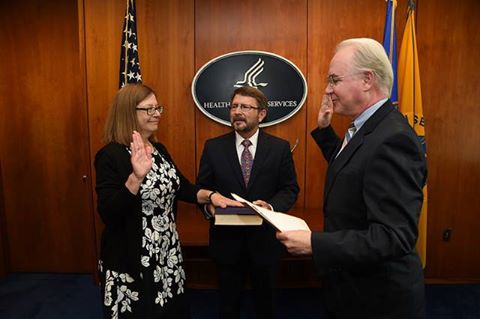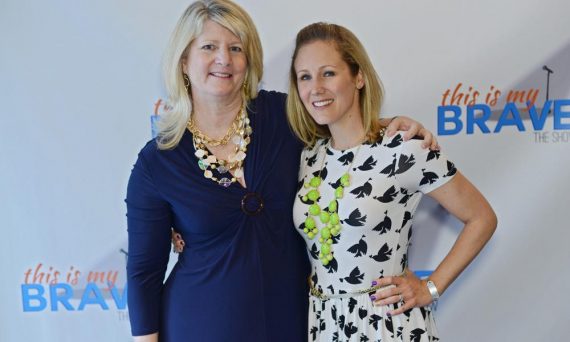
(9-14-17-17)
“Clare was a very marvelous gifted athlete,” he said. ”In her best year in high school, she was district champion in tennis; she was a catcher on the baseball team; she was an absolutely outstanding guard on the basketball team.” During her freshman year at Wake Forest in North Carolina, however, Clare started to lose her zest, growing ”fuzzy” and inordinately indecisive. She would call home frequently for guidance on simple issues, ”like what kind of potato to have…She was all out of whack. Then my wife, Nancy, went down there to help her and ended up bringing Clare back home. That’s when things got really out of hand. Her temperament totally changed. She became angry, mean. Throwing things at mirrors. Cussing, swearing. Crying, shrinking into a shell, taking to her bed. And that started two novice parents down the strange path of having to believe something we didn’t want to believe. And to really believe it, to acknowledge that Clare was mentally ill, took a long time.”
Those words were spoken by former U.S. Senator Pete Domenici who died yesterday at age 85 in Albuquerque, New Mexico. He disclosed his family’s struggles in a New York Times article (reprinted below) that was a shocker when it appeared in 2002 – a time when most politicians were afraid to publicly discuss mental illness and substance abuse in their own families. He later told me the story came with a personal cost because it had upset his daughter. Yet, it was his frankness in describing his frustration and family’s plight that showed mental illnesses can impact any family and it was his brutal honesty that helped persuade his colleagues to pass the landmark Paul Wellstone and Pete Domenici Mental Health Parity and Addiction Equity Act (MHPAEA). It was written to close loopholes that enabled insurance companies and health care providers to discriminate against Americans with mental illnesses and substance abuse problems by treating those issues differently from other health problems.
The New York Times quoted Andrew Sperling, legislative director for the National Alliance on Mental Illness, in 2002 stating that Domenici played a singular role precisely because he was perceived as an unlikely advocate until after he told his family’s story.
‘‘If the parity legislation had come along as a Kennedy-Wellstone initiative, it would never have been taken seriously in the Senate. Democrats come up with mandates on health insurance every day. But when a senior Republican senator with a fairly conservative voting record comes forward and says that in this instance the federal government has a responsibility to set a standard on the marketplace — it has the flavor of a Nixon in China.”
Sen. Domenici, along with his wife, Nancy, were strong supporters of NAMI whose CEO, Mary Giliberti, issued a statement yesterday that I am posting along with Domenici’s family story as told in the New York Times.
His death is a tremendous loss to Americans who have a mental illness or substance abuse issues or love someone who does. ( Sen. Wellstone died at age 58 in an airplane crash.)
(In other political news, supporters of Assisted Outpatient Treatment are trying to understand this morning why the House voted down an amendment introduced last night by Rep. Tim Murphy (R. Pa.) that would have added $5 million extra to fund Assistant Outpatient Treatment pilot programs. The amendment lost by a vote of 198 vs 219 (see your representative’s vote here) even though Congress last year had authorized $15 million for the same programs. The federal government has ruled that court ordered treatment is an “evidence based” practice that benefits the seriously mentally ill, but it still continues to be opposed by many consumer groups and legislators who fear expanding judge ordered treatment will require communities to provide supportive services (housing, job support, etc.) that are expensive. Five other mental health amendments Murphy introduced were approved. They included: Infant and Early Childhood Mental Health Promotion, Intervention and Treatment- $5 million; Increasing Access to Pediatric Mental Health Care – $9 million; Strengthening the Mental and Substance Use Disorders Workforce- $10 million; National Mental Health and Substance Abuse Policy Lab – $5 million; Strengthening Community Crisis Response Systems – $10 million.)
NAMI Mourns The Loss Of Senator Pete Domenici
ARLINGTON, Va., September 13, 2017 – NAMI, the National Alliance on Mental Illness, is saddened to hear the news that former-Senator Pete Domenici of New Mexico has passed away. Senator Domenici served in the U.S. Senate for 35 years. Along with his wife Nancy, the senator worked tirelessly to educate his colleagues about mental illness and the need to improve mental health services and supports.
NAMI Chief Executive Officer Mary Giliberti expressed her heartfelt sorrow to Mrs. Domenici and the entire Domenici family: “Today, we mourn the loss of one of our staunchest allies. Senator Domenici has been a longtime advocate fighting for equal treatment for mental illness. He leaves behind a legacy in Congress on behalf of people with mental illness and their families that will never be forgotten. NAMI offers our deepest condolences to Nancy and their family.”







